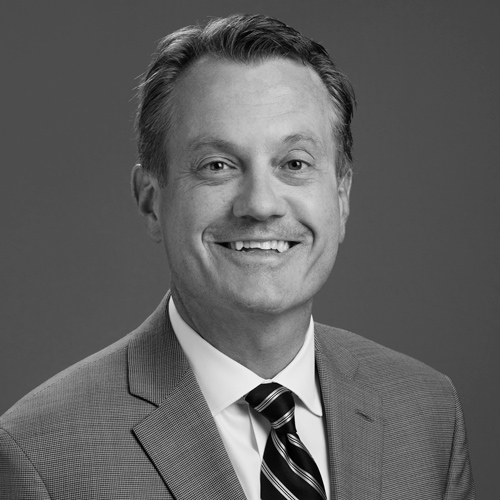Law or medicine. That was the career choice for Krista M. Curell. She was always interested in both paths, and as vice president, accountable care and chief compliance officer for the University of Chicago Medical Center (UCMC), she has successfully merged the two. But getting to that point actually started with a leap of faith.
Born in Vassar, Michigan, a small town in the eastern portion of the state, Curell attended Michigan State University and then Chicago’s DePaul University College of Law, where she specialized in health law. At the time, Curell thought she would focus on medical malpractice law. “Once I got to law school, though, I felt more drawn to the hospital setting, being on the front line with clinicians,” she says.

Curell researched in-hospital positions, such as risk management and patient safety roles, that would benefit from a legal background and thought that would be a good fit—except for one issue. “I didn’t feel I had the credibility necessary to be successful if I didn’t have a clinical background,” Curell says. So, she enrolled in Rush University’s College of Nursing.
“People thought it was so unusual to go to nursing school after law school,” she continues. “Occasionally, you see nurses go to law school, but you don’t often see lawyers going to nursing school. But nursing school was the perfect opportunity to learn about the clinical perspective and see firsthand how operations and systems affect patient safety and risk reduction. It was a focused approach to what I wanted to do, to speak the same language, and appreciate what patients and family members are going through.”
After graduating, she looked at many organizations and found UCMC. Curell recalls how it was UCMC’s unique approach to patient care that was especially important for her. “Through a multidisciplinary approach, clinicians and administrators partner to make decisions. Everyone has an equal voice at the table,” Curell says. Her own voice is also unique. In fact, Curell’s role is so rare, that you won’t find it at other organizations. “A diverse group of departments report to me,” she says. “You may not see how they connect, but we have so much synergy that it works very well.”
Curell handles risk management and patient safety, including all errors that occur during patient care, analyzing outcomes, and working with physicians to prevent errors. “When I came in, risk management was just starting,” she says. “We have expanded significantly.” She also helped the transition from written to web-based reporting systems and added to the scope of adverse events and alarms reported. “We started in 2001 with about one thousand events a year, and now we are at more than ten thousand a year,” she says. Most fall into the near-miss category and only require minor adjustments to fix. But these errors are important to identify and correct risks, she says.
She also instituted a fully transparent disclosure program for when an error does occur to let the patient know exactly what happened and to look at the provider side of the story if the error results in litigation. “Most, if not all, hospitals are required to have disclosure programs now, and we were an early adopter of that philosophy,” Curell says. “If things don’t go as expected, we are completely transparent. We walk through what we know to have happened with the patient and family. We are frank and honest when events occur. And it is also important that they hear from the clinicians themselves and not just administrators. We want to re-establish some type of trust that can be lost when things don’t go as expected.”
Curell is also responsible for the medical staff office, including credentialing and overseeing the physician assistance committee, which ensures physicians get the care they need as they age or face substance abuse issues. On the compliance side, she is responsible for meeting Joint Commission standards and is in charge of corporate compliance. She is also working with a group of about twelve nurses who in turn work with physicians to ensure that their medical records accurately reflect the complex nature of the patient population.
Currently on her to-do list is a major initiative to increase in-patient bed capacity. The focus is on case management, social services, and reducing length of stay for patients while also improving safety and capacity. “We are at full census almost every day, and we have no more space to grow,” she says. The hospital is also scheduled to open a Level I trauma center in 2018, which will add more patients who need complex care. “To meet those demands, we have to reduce current length of stay, so we are working to transition patients to ambulatory care or home healthcare as soon as possible,” Curell continues.
Safety, of course, is paramount. Over the past five years, the hospital has dramatically improved specific safety metrics, such as the number of blood stream infections. Curell says her department has a unique approach, in that everything it does involves partnering with a strong physician leader, including the hospital’s chief medical officer, Dr. Stephen Weber. “It helps to have that physician by your side,” Curell says. “It has contributed to my success and the success of the organization.”
Curell calls herself a vocal leader. She has high expectations for herself and her team, and she is the first to roll up her sleeves and jump in the weeds with directors. But she also gives them space to do their jobs. “I trust each of them as leaders,” Curell says. “You can’t grow and mentor leaders if you micromanage.”
And it’s all intended to meet the medical center’s primary mission: “We put patients first, ensuring we are not only meeting their needs clinically, but with a sense of integrity, honesty, and safety,” Curell says. “The pressure is on us as individuals and as a department to perform well. The goals are high. But I can’t think of a job more important than providing safety for our patients.”
CNA honors Krista Curell of The University of Chicago Medical Center. As a trusted leader and top provider of insurance products and risk management services, we are proud to be the insurer of choice for more than one million healthcare organizations and professionals worldwide operating across the continuum of care.


